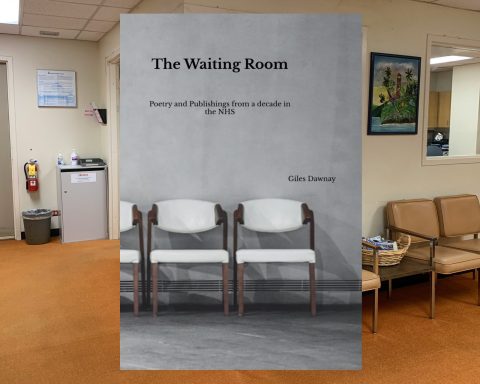 Andrew Papanikitas is Deputy Editor of the BJGP and a GP in Oxford. He is on X: @gentlemedic
Andrew Papanikitas is Deputy Editor of the BJGP and a GP in Oxford. He is on X: @gentlemedic
This is the article where I pick out some seasonal reading that is modestly sized and modestly priced such that it might fit in the standard proverbial Christmas stocking (not the supersized quilted one or the poorly disguised pillowcase). This kind of book is usually to be found in piles by the cashier in any large UK bookshop.
We have already included The Greatest Gift and A Christmas Carol in previous seasonal reviews and discussions on BJGP Life, but there is still so much to choose from, with offerings including crime novellas, economic tracts, geopolitical explainers, and illustrated seasonal excerpts from Harry Potter.
The Centrist Dad Handbook (uncomfortably funny) by Jason Hazeley and Nico Tatarowicz almost made the cut, as did The Christmas Guest by Peter Swanson (a chilling whodunnit). If there’s a unifying theme for the books I chose this year … lets just say they could be enjoyed with some nice tofu (they are a bit woke) just as easily as with a turkey lunch.
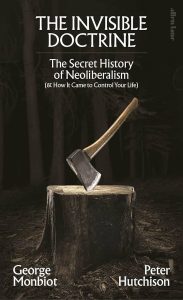
The Invisible Doctrine: The Secret History of Neoliberalism (& How it Came to Control Your Life), by George Monbiot and Peter Hutchison
During Christmas-tree season a book with a tree stump and an axe on its cover might seem in poor taste, a bit scrooge-like. Bear with me though, it’s an excellent winter read. Deforestation on the island of Madeira makes for a compelling case study of neoliberal capitalism — a tale of trees and people consumed in order to fuel the manufacture of sugar. This is just a taste, however, and this short book spans centuries in its discussion of an ideology that has dominated our politics without many of us ever having been aware of it. Neoliberalism sees competition as the defining characteristic of human relations. It maintains that market forces deliver benefits that could never be achieved by planning or taxation by governments.1 This short and unashamedly argumentative narrative shines a light on an economic and political force that has shaped and (the authors argue) harmed our world. I must confess that the word neoliberal was not one I had used, or understood when I heard it, until into my thirties. The authors invite us to imagine that the people of the Soviet Union had never heard of communism. Is neoliberalism like that for you?
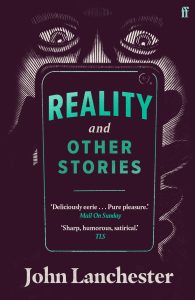
Reality and Other Stories, by John Lanchester
The telling of ghost stories is very much a winter tradition. This collection is haunted by the uncanny technologies and absurd horrors of modern life. This one has been around for a while (since 2020) but it has matured well. John Lanchester’s style connects with our daily lives and frustrations, even the ideas that might amuse us as he gives our fears narrative form. After reading this you may think twice about using a smartphone in a graveyard, and the word ‘literally’ may have new meaning. Be warned!
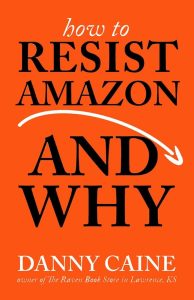
How to Resist Amazon and Why, by Danny Caine
But why (Oh! Why?) would you read a book like this during the season of last-minute online present ordering? My edition of this is from 2021. It is probably fair to say that online delivery companies and media streaming services had done very well out of the COVID-19 pandemic. This book — there were piles of them by the cashier in the bookstore — does exactly what it claims: it defends the fight for local economies, data privacy, fair labour, independent bookstores, and a people-powered future. The author, an independent bookstore owner from the US, suggests that we should shift our money and civic investment away from global corporate behemoths to local independent business. There’s a small bookshop in Sidmouth that has definitely benefitted from my purchasing this book.

The Thinking Heart: on Israel and Palestine, by David Grossman
It is heartbreaking to think that at a time when many in the West are either celebrating Christmas as a religious or as a commercial festival, the so-called holy lands are awash with war, fuelled by hatred, atrocities, and political extremism. David Grossman is an internationally acclaimed Israeli novelist and campaigner for peace in the region. In ten essays and a poem, he reflects on the key political events that led up to and followed on from the 7 October massacre in Israel and the subsequent genocide in Gaza. Each chapter stands on its own but reading them in sequence emphasises the evolving human calamity. David Grossman hopes that war will end but wearily reflects that this may only be when both sides are exhausted from fighting. This book serves as a warning to the rest of the world.
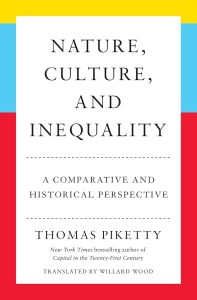
Nature, Culture and Inequality: A Comparative and Historical Perspective, by Thomas Piketty
If you are new to the work of economist Thomas Piketty and don’t have a year (maybe I’m exaggerating slightly) to read Capital in the Twenty-First Century, you might consider watching the 2019 StudioCanal docu-movie,2 or reading this small book. Piketty argues that there isn’t a set way in which social inequalities manifest and so inequality may not be natural or inevitable. I was amused by the case study of Sweden, where from 1865 there was a complex system of voting eligibility, based on wealth and property. In some principalities a single voter could determine the result of a local election. Universal suffrage in 1920 resulted in a Social Democrat parliament, which used the same formula that had granted votes according to wealth for a system of progressive taxation. Topics include inheritance, taxes, and the climate crisis. All of which can raise the tone of debate at family gatherings.
Deputy Editor’s note: see also — https://bjgplife.com/a-christmas-cracker-from-bjgp-life-party-games
References
- Monbiot G. Neoliberalism — the ideology at the root of all our problems. The Guardian 2016; 15 Apr: https://www.theguardian.com/books/2016/apr/15/neoliberalism-ideology-problem-george-monbiot (accessed 21 Oct 2024).
- Studiocanal UK. CAPITAL IN THE 21st CENTURY — Official Trailer. YouTube 2020; 23 Jun: https://www.youtube.com/watch?v=mcJm8Cfo0tM (accessed 21 Oct 2024).
Featured photo by Chad Madden on Unsplash.


